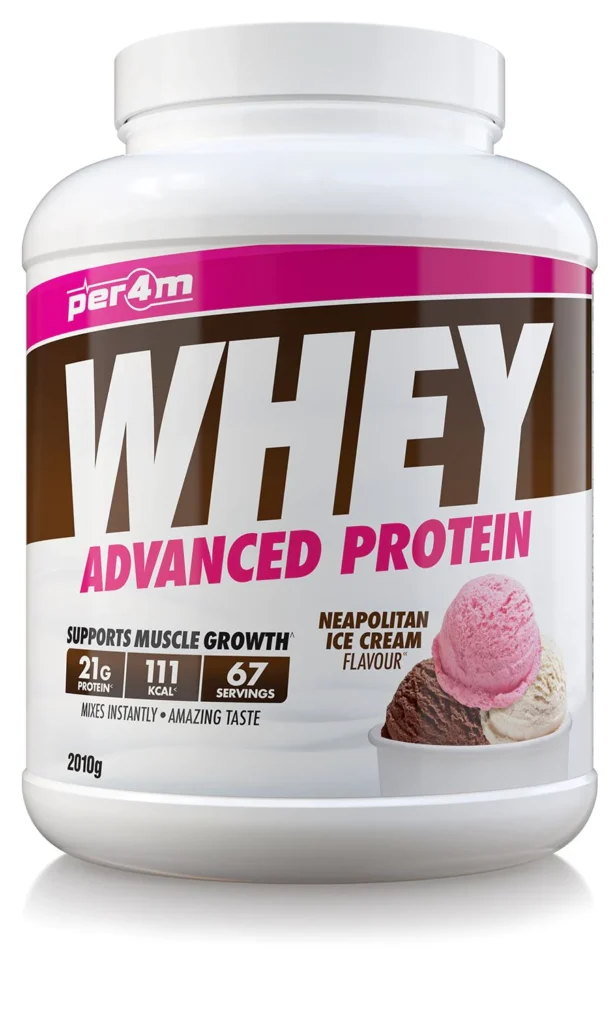Protein is the unsung hero of any diet plan, regardless of your fitness objectives or your goals. Whether you’re striving for fat loss, muscle gain, or simply maintaining a healthy weight, protein should be a fundamental component of your strategy when working with an online fitness coach. In this blog, we’ll delve into the importance of protein in helping you reach and maintain your fitness and dietary goals.
1. Supports Muscle Growth and Repair
One of the most renowned roles of protein is its ability to promote muscle growth and repair. Regardless of your fitness aspirations, be it building sculpted muscles for competition or simply preserving your existing muscle mass, adequate protein intake is indispensable. When you engage in resistance training or any form of physical activity, you inevitably create tiny tears in your muscle fibres. Protein helps to mend and fortify these fibres, making your muscles more robust and leaner in the process. Whether you’re aiming to bulk up or merely prevent muscle loss, protein is your trusted ally.
2. HELPS Boost Metabolism
Here’s a lesser-known fact: protein has a higher thermic effect than both carbohydrates and fats. What this means is that your body expends more calories during the digestion of protein compared to other macronutrients. Including sufficient protein in your diet can provide a metabolic boost, which can be advantageous for those seeking fat loss. This isn’t to say you need to embrace an exclusively high-protein diet, but ensuring you maintain a balanced protein intake is essential for efficient weight management.
3. Helps You Feel Fuller
Have you ever noticed how a protein-rich meal leaves you feeling full and satisfied for longer? This isn’t a coincidence. Protein is renowned for its ability to enhance fullness, helping you curb cravings for unhealthy snacks and late-night refrigerator raids. This satiety-inducing property can be a game-changer for individuals looking to shed excess fat. When you feel full after meals, you’re less inclined to over-eat, making it easier to stick to a calorie deficit if that’s your objective.
4. Preserves Lean Body Mass During Fat Loss
If you’re embarking on a journey to lose excess body fat, protein is your biggest friend. When you’re in a calorie deficit, meaning you’re consuming fewer calories than your body burns, your body taps into its energy stores for fuel. These stores include both fat and muscle. Consuming an adequate amount of protein helps guard against muscle loss during this process. Why is this important? Losing muscle mass can decelerate your metabolism, making it more challenging to sustain your weight loss over time. Protein acts as a shield, safeguarding your hard-earned muscle while you shed unwanted fat – you’ll also maintain strength in the gym for those hard hitting sets.
Recommended Proteins
5. Supports Overall Health
While protein’s role in muscle growth and weight management often takes centre stage, it’s essential to recognise its contributions to overall health. Protein is a versatile nutrient that plays a critical role in maintaining a strong immune system, repairing damaged tissues, and facilitating the production of vital enzymes and hormones. Including protein-rich foods in your diet can leave you feeling more energised, improve your mood, and contribute to your overall well-being.
How Much Protein Do You Need?
The optimal amount of protein varies from person to person, contingent upon factors such as age, gender, activity level, and specific goals. However, as a general guideline:
- Sedentary adults typically require around 0.8 grams of protein per kilogram of body weight.
- For those leading active lifestyles, protein needs may range from 1.2 to 2.2 grams per kilogram of body weight.
Sources of Protein
Protein can be sourced from a variety of animal and plant-based options:
Animal Sources: These include lean meats like chicken and turkey, fatty fish such as salmon, tuna and trout, eggs, and dairy products like yoghurt and cheese. These options are rich in high-quality protein and essential nutrients.
Plant Sources: For those following vegetarian or vegan diets, plant-based protein sources are abundant. Legumes like beans and lentils, tofu, tempeh, nuts, seeds, and certain grains like quinoa are excellent sources of protein. Combining different plant-based protein sources can help ensure you get a well-rounded amino acid profile.
Summary
Incorporating an ample amount of protein into your diet is a fundamental step toward achieving and maintaining your fitness objectives, whether it’s weight loss, muscle gain, or sustaining a healthy weight. Protein supports muscle development and repair, revs up metabolism, enhances feelings of fullness, guards against muscle loss during fat reduction, and contributes to overall health. Keep in mind that a well-balanced diet with an appropriate amount of protein can be a game-changer on your journey to health and fitness.






